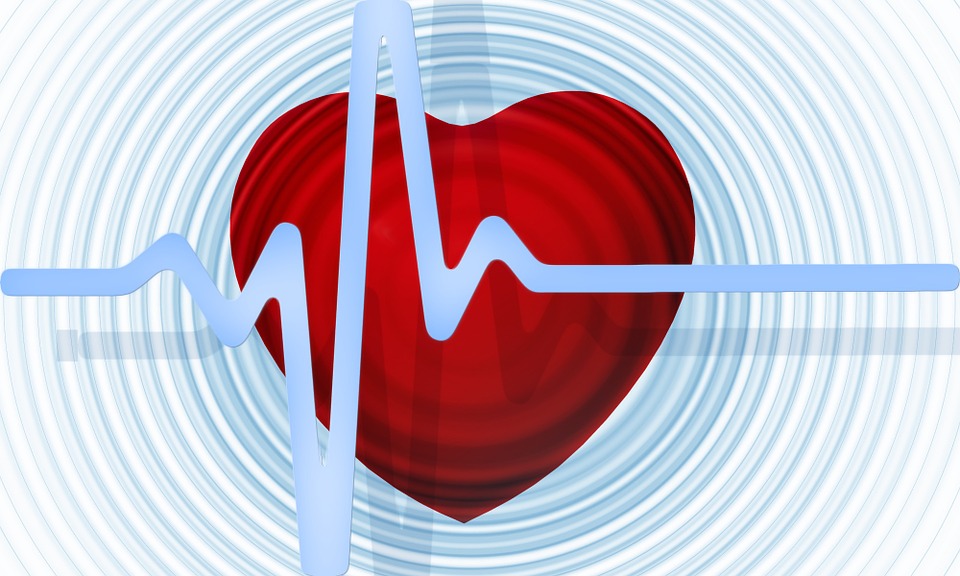
Our body cells are responsible for the essential breakdown of food into energy, as it is vital for our body functioning. Cells break down food into glucose and then convert glucose into energy through insulin, which is an important hormone in the body. Diabetes is associated with the inappropriate functioning of insulin and can be classified into two types: Type I and Type 2 Diabetes. In type I Diabetes, the body does not make enough insulin. In type 2 diabetes, the cell do not use insulin properly.
Both conditions cause blood glucose levels to rise in the body. Diabetes is more than one disease as it poses serious health risks. People with diabetes are at risk of developing a host of problems such as stroke, hypertension, nerve damage, skin, eyes and kidney problems. High amount of blood sugar level can cause damage to the blood vessels leading to blocked arteries restricting blood flow to the heart. Poor blood glucose control can lead to high blood pressure and other blood lipid abnormalities including high levels of HDL (good cholesterol) and triglycerides.
The link between cardiovascular disease and diabetes is well established by medical science. It is estimated that 65% of people with diabetes die of heart disease, which makes it a leading cause of all deaths among diabetic patients. Doctors refer to this connection as DHD- Diabetic Heart Disease. The term Diabetic Heart Disease covers coronary heart disease; narrowing of the arteries, heart failure; minimising heart’s capacity to pump enough blood and diabetic cardiomyopathy; alteration in the structure and function of the heart.
A sedentary lifestyle with little or no physical activity, smoking, stressful life and unhealthy eating habits all contribute to weight gain, high cholesterol, high blood pressure, heart diseases and diabetes. Thus, weight and lifestyle issues management is the best way to prevent and control such health risks.
Let’s look at some simple but effective ways towards a healthy lifestyle:
1.Physical exercise: Adopt a 30 minute exercise rule to remain healthy and fit. For diabetic patients, a morning and evening walk is highly recommended. You could walk, run, gym, climb stairs, do yoga, aerobics or other physical activity that interests you.
2.Eat healthy: Avoid fried and packaged foods as they are full of fats, salt and sugar. Include seasonal vegetables and fruits in your diet and drink plenty of water. Dieticians recommend eating a heart-healthy diet including superfoods like broccoli, spinach, berries and fibre rich meal.
3.Weight management: Keeping weight under check is an effective way to prevent the risk of heart diseases. Consult a dietician for a customised diet plan as per your medical condition.
4.Be positive: Stress is a silent killer and a major contributor to all lifestyle diseases. Remain calm and manage your negative thoughts to overcome stress.
Here’s another reason to take your education seriously. According to a latest study, those who go for higher education or stay in education for a longer period of their lives are less likely to develop heart disease. The study published in The British Medical Journal revealed that the number of years spent in education may have a link to coronary heart disease, and the greater the number spent studying, the substantial the benefit.
Several studies in the past have tried to examine the impact between education and its lower risk of developing coronary heart disease, several theories have been postulated linking confounding factors such as diet or physical activity.
For the study, the team analysed 162 genetic variants already shown to be linked with years of schooling from 543,733 men and women, predominantly of European origin, using a technique called mendelian randomisation. The findings revealed that genetic predisposition towards more time spent in education was associated with a lower risk of coronary heart disease.
The study further revealed that about 3.6 years of additional education (almost equivalent to an undergraduate degree), could be linked to reducing the risk of coronary heart disease by one-third.
The researchers were not only thrilled by the discovery, but also the fact that the study throws open a new angle in the fight against coronary heart diseases. For about fifty years, doctors and public health experts have focused on getting people to maintain healthy blood pressure and cholesterol. Researchers believe that the study not only brings forth a new factor in the ongoing studies of coronary heart diseases, but also encourage people to stay in education for longer.
While the studies on coronary heart risks and diseases are one, here are some foods that may boost your overall heart health.
1.Oats
Oats are said to contain a type of fiber that helps to bind bile acids and expel them from the body. These bile acids are made from cholesterol. A diet that includes oats is effective in lowering the cholesterol levels in our body. Oats are also rich in Omega 3 fatty acids.
2.Nuts
Chewing on a handful of nuts can do wonders for your heart. Almonds, walnuts and many more nuts are now considered to be the super foods in promoting heart health. These nuts have high amounts of unsaturated fats, which is good for the heart as it helps in reducing the inflammation of the arteries.
3.Legumes
Legumes are great for the heart and have antioxidants, proteins and fiber. They are also a great source to get your folate requirement from. Like berries they also help in increasing the platelet activity.
4.Chia Seeds
Consultant nutritionist Dr. Rupali Dutta suggests that you should have a fistful of nuts and seeds about 30 grams every day to keep your cholesterol levels in check. Besides being full of fiber, chia seeds
are rich in protein and calcium. All of these good nutrients come at the cost of very few calories.
5. Wheat Bran
Wheat bran is high on insoluble fibre that helps in keeping your cholesterol levels in check. Plus, eating fiber-rich foods keeps you full for longer which means that you will eat less of the unhealthy foods that raise your cholesterol. Wheat bran is the hard, outer layer of the wheat grain. You can add wheat bran to you breakfast cereal or pancakes. You can even add it to soups and stews.
Irregular heartbeat -- also known as atrial fibrillation -- may lead to serious health issues like heart attacks, heart failure, chronic kidney disease and sudden cardiac death, finds a study. The researchers studied the associations between atrial fibrillation and cardiovascular disease, renal (kidney) disease and death.
They analysed the results of 104 studies involving over nine million participants (587,867 with atrial fibrillation). Absolute risk increases included 3.8 events per 1,000 participant years for all cause mortality, 1.4 events per 1,000 participant years for ischaemic heart disease, and 6.6 events per 1,000 participant years for chronic kidney disease.
The absolute risk increase for heart failure (11 events per 1,000 participant years) was the highest among the outcomes examined. According to the study, published in the journal The BMJ, atrial fibrillation was associated with a two times risk of cardiovascular mortality, a 2.3 times risk of stroke and a five time risk of incident congestive heart failure.
"Our study could have implications for the prioritisation of public health resources and the development of novel interventions for adults with atrial fibrillation," said lead author Ayodele Odutayo, doctoral candidate at University of Oxford.
The researchers pointed out that the risk increases associated with many of these events is greater than that of stroke and mentioned that the study adds to the growing literature on the association between atrial fibrillation and cardiovascular outcomes beyond stroke.
If you thought eating eggs is bad for your heart due to their high cholesterol content, think again. A large study has now shown that people who consume an egg every day could significantly reduce their risk of cardiovascular diseases.
“The present study finds that there is an association between moderate level of egg consumption (up to one egg/day) and a lower cardiac event rate,” the study authors said.
The researchers pointed out that eggs are a prominent source of dietary cholesterol, but they also contain high-quality protein, many vitamins and bioactive components such as phospholipids and carotenoids.
Cardiovascular disease (CVD) is the leading cause of death and disability worldwide mostly due to ischaemic heart disease and stroke (including both haemorrhagic and ischaemic stroke).
For the study, published in the journal Heart, Chenxi Qin from Peking University Health Science Centre in Beijing, and colleagues set out to examine the associations between egg consumption and cardiovascular disease, ischaemic heart disease, major coronary events, haemorrhagic stroke and ischaemic stroke.
They used data from the China Kadoorie Biobank (CKB) study, an ongoing prospective study of around half a million (512,891) adults aged 30 to 79 from 10 different geographical areas in China.
The researchers focused on 416,213 participants who were free of prior cancer, cardiovascular disease (CVD) and diabetes.
Analysis of the results showed that compared with people not consuming eggs, daily egg consumption was associated with a lower risk of CVD overall.
In particular, daily egg consumers (up to one egg per day) had a 26 per cent lower risk of haemorrhagic stroke, a 28 per cent lower risk of haemorrhagic stroke death and an 18 per cent lower risk of CVD death.
In addition, there was a 12 per cent reduction in risk of ischaemic heart disease observed for people consuming eggs daily, when compared with the ‘never/rarely’ consumption category — about 2.03 eggs per week.
This was an observational study, so no firm conclusions can be drawn about cause and effect, but the authors said their study had a large sample size and took into account established and potential risk factors for CVD.
Chronic diseases claim more Indian lives than infectious diseases, and take a huge toll: Between 2012 and 2030, non-communicable diseases and mental health conditions are expected to cost India $4.58 trillion. The government supports states to respond, but much more needs to be done. New research for India Consensus, a collaboration between Tata Trusts and Copenhagen Consensus, reveals some strategies should be prioritised against specific diseases.
The analysis by Professor Shreelata Rao Seshadri of Azim Premji University with Vijayalakshmi Hebbare fills evidence gaps by identifying the costs and benefits of responses to non-communicable diseases.
Diabetes will cost India Rs 9.7 trillion between 2012 and 2030. The situation varies from state to state, but taking the example of Andhra Pradesh, about one in three people are overweight or obese, and one in 10 have high blood sugar. On current trends, diabetes will kill 159,000 adults in the state alone in 2030.
The new research shows screening and therapy would cost around Rs 2,000 per person annually, or about ₹590 crore over the next 13 years, and save more than 11,000 lives annually and cut chronic suffering by more than 10%. Putting those benefits into economic terms, every rupee would achieve more than 18 times costs.
Cardiovascular disease (CVD) is a killer with such a high national burden that its cost between 2012 and 2030 is almost the equivalent of wiping out an entire year of Indian GDP. In AP, it will claim the lives of nearly one lakh adults this year.
The simple answer is screening and cheap medicine for those at risk. This could avoid more than 2.6 lakh deaths over 13 years, at an average cost of about Rs 4,000 per treated person. The total cost of Rs 4,400 crore will result in benefits worth 31 times the costs.










